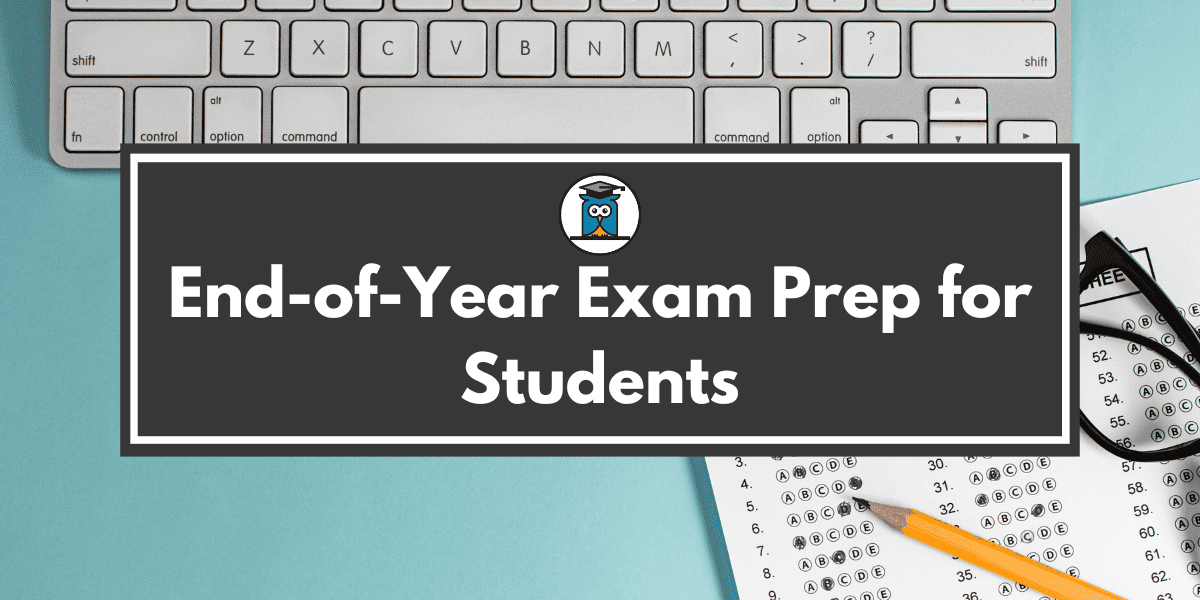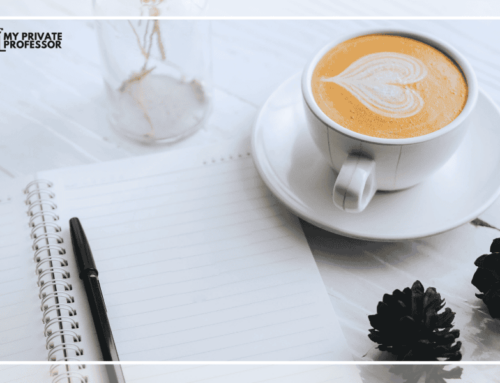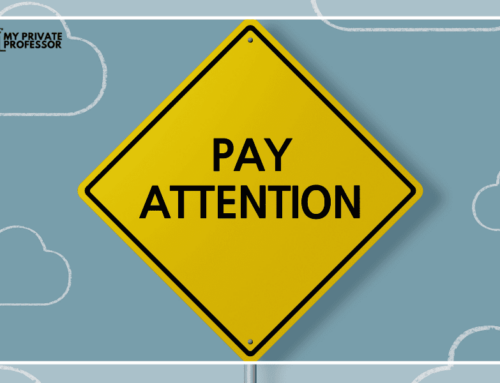As a student, when the end of the school year is approaching, you probably have one final push: exams. And when you’ve got summer fever, studying for exams may be the very last thing you want to do (chances are, you’ve got a whole list of things you’d rather do).
But you know that doing well on your exams is a chance for you to pull up your grades, so you push through. Of course, this is often easier said than done. After all, it’s incredibly easy to get lost in a deep train down Google, looking at all the fun excursions you’re planning for the summer.
That’s why we’ve rounded up some of our recommendations for end-of-the-year exam prep.
Devise an exam study schedule
When you have a lot of studying looming before you, crafting a schedule can make the study process feel a lot more manageable. This way, it won’t seem like an endless amount of studying, because you’ll literally have a timeline in front of you.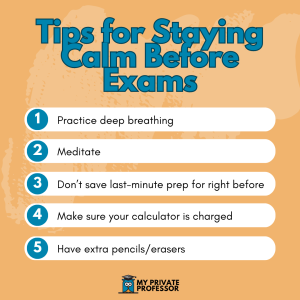
Think about when you have the most and least amount of time, and consider scheduling your most taxing studying for the larger blocks of time. Often, rushing through the difficult stuff just leads to more stress, which makes it increasingly difficult to concentrate and retain information.
Organize your materials
Having to jump up and interrupt your study flow every time you need to grab a worksheet or formula sheet can be quite annoying.That’s why you should think about all of the materials you may need, and have them close to you while you study.
Think: ruler, calculator, graph paper, formula sheets, folder with homework assignments, pencils, erasers, highlighters…
Having everything in place makes it easier to concentrate on your work for extended periods of time—after all, we often underestimate the time in which it takes us to refocus attention back to the initial task. In fact, research shows that it takes an estimated 23 minutes to refocus your attention after distraction.
So do what you can to maximize your time studying—and one simple way to do this is to get into the habit of gathering all of your necessary materials before you start studying.
Identify your weak areas
Often, when you feel major stress and anxiety around exams, it’s not that everything feels unmanageable—but a few things do. And those few areas can exacerbate any stress you have, making it more difficult to have productive study sessions.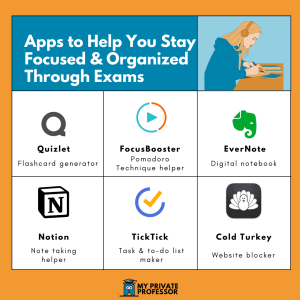
So think about everything you need to study for your exams (you can even write them all down to make it more clear), and then pinpoint your weakest areas.
For a lot of students, tackling these topics first can help with managing stress. Plus, if you get those areas out of the way, you’ll be better able to compartmentalize after and just focus on each specific area (without letting your mind wander to the challenging areas).
Research actually suggests that although doing the easy tasks is more satisfying in the short-term, it may reduce students’ performance over the long run.
Write down any exam questions
It’s normal to come up with various questions while you study—and if you don’t jot them down, you may forget them. Then when it comes time to take your exam, you might come across questions that stump you because you didn’t answer your questions. No one likes that feeling—the, I should have done that, feeling of disappointment.
So take the time to write down your questions and make sure that you bring them up in class or meet with your teacher privately to discuss them.
Review your notes
When in class, you may take a bunch of notes that may or may not seem helpful. But one thing’s for sure: you’ll want to review them before your exams. Reviewing notes from various topics you covered throughout the year will help you ensure that you’re covering everything in your study sessions. Additionally, if you find that you haven’t reviewed all necessary material, your notes can bring you back up to speed on specific topics.
Go over old homework and exams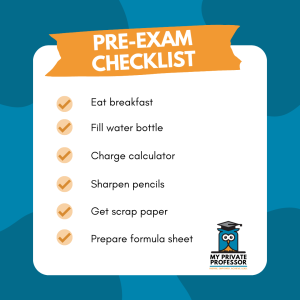
While going over your past homework assignments and reviewing old exams may not be the most exciting task in the world, it may be useful during your study sessions. This rings true particularly if you’re forgetting a certain formula or concept and just need a little refresh.
Plus, you can identify past mistakes or recurring errors, and then plan your next study session around these weaker areas.
Attend office hours
It is truly one of the worst feelings in the world to sit in class with burning confusion in your mind, not ask your questions, and then not have anyone to turn to. If you have the privilege of office hours, GO!
It can feel a little scary, but once you do it once, it only gets easier.
Take care of yourself!
This one’s important. If you’re spending all day and night studying and neglect any form of self-care, you’re doing yourself a disservice.
And you’re forgetting the very real way in which those crucial forms of care (sleep, exercise, nutrition, etc.) can and will have an effect on your exam performance. 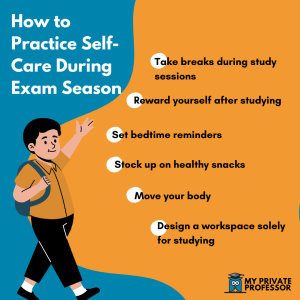
Try to actively put energy into simple self-care practices, which in the long run, will help your study game. For instance, maybe you commit to prepping some energizing study snacks on Sunday so that you don’t have to worry about it throughout the week
If you’re someone who often finds themselves putting aside all forms of care in order to study as much as humanly possible, try being preemptive in your self-care practices. You can do this by setting reminders for yourself on your phone (“HYDRATE!!”) or you can leave post-it notes in various places—the bathroom mirror, your laptop, the fridge, etc.
Final thoughts
So while exams may seem like an event as huge as, say, Halley’s Comet, in the end, you’ll realize that they’re just a tiny part of your academic journey. Do what you can do, be kind to yourself, and don’t forget to celebrate when you’re done—even if you think you may very well have tanked your algebra exam. After all, failure is not only inevitable, but a necessary part of life!
And even if you didn’t do as well as you hoped on your exams, have faith that in the end, everything will work out as it should (and that your exam scores don’t define you).
If all else fails, just remember Albert Einstein’s wise words: “I didn’t fail the test. I just found 100 ways to do it wrong.”


